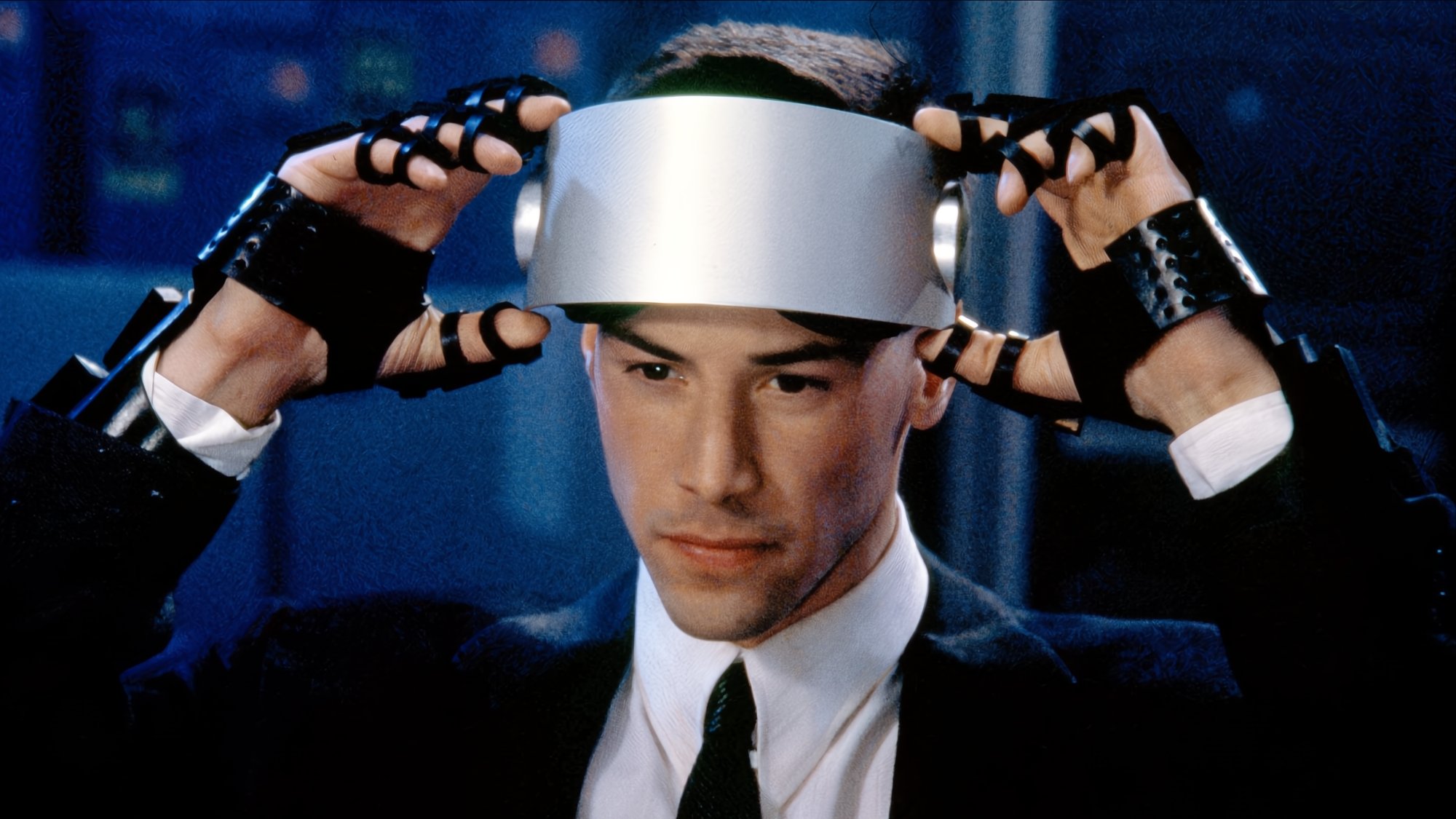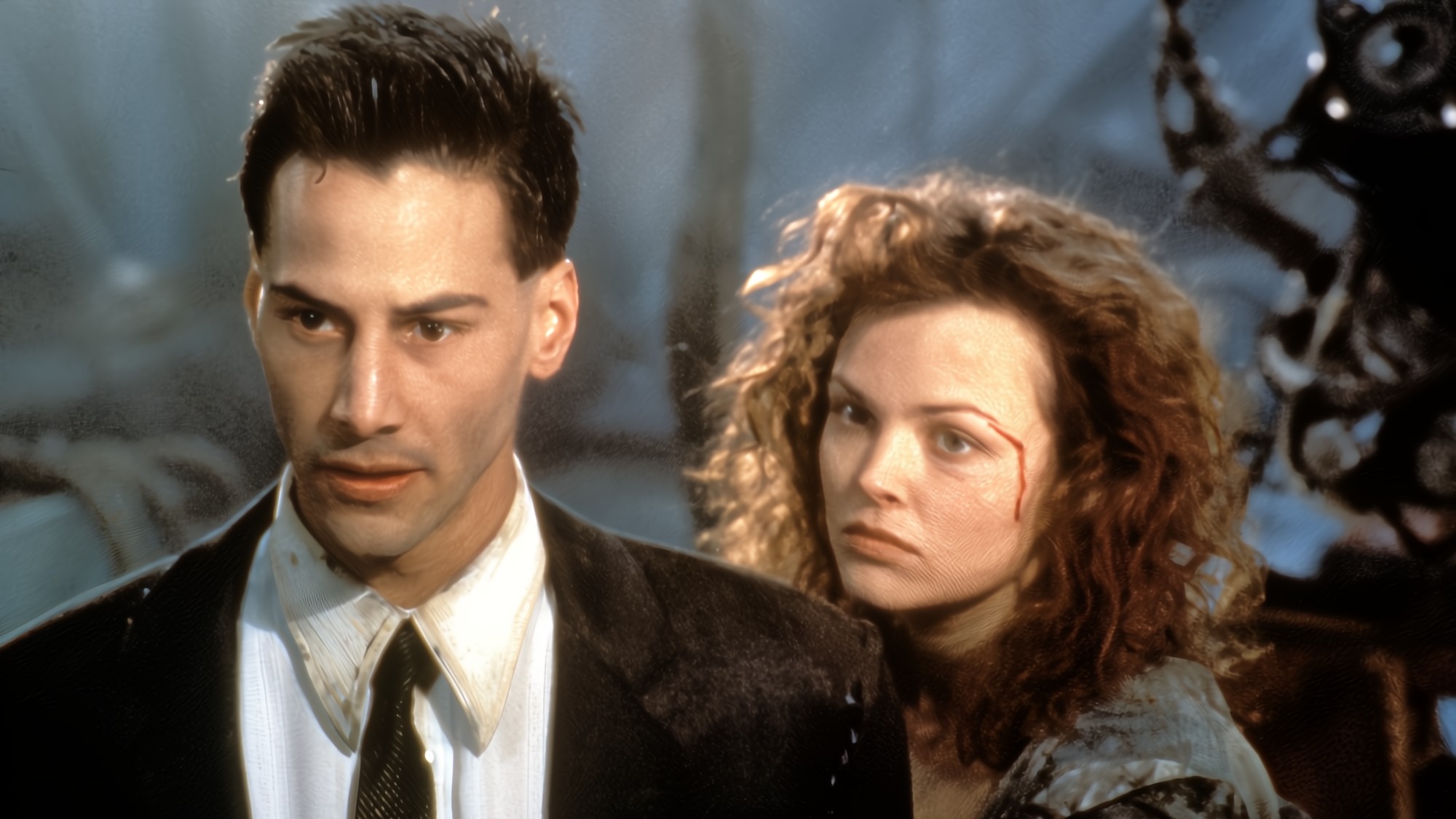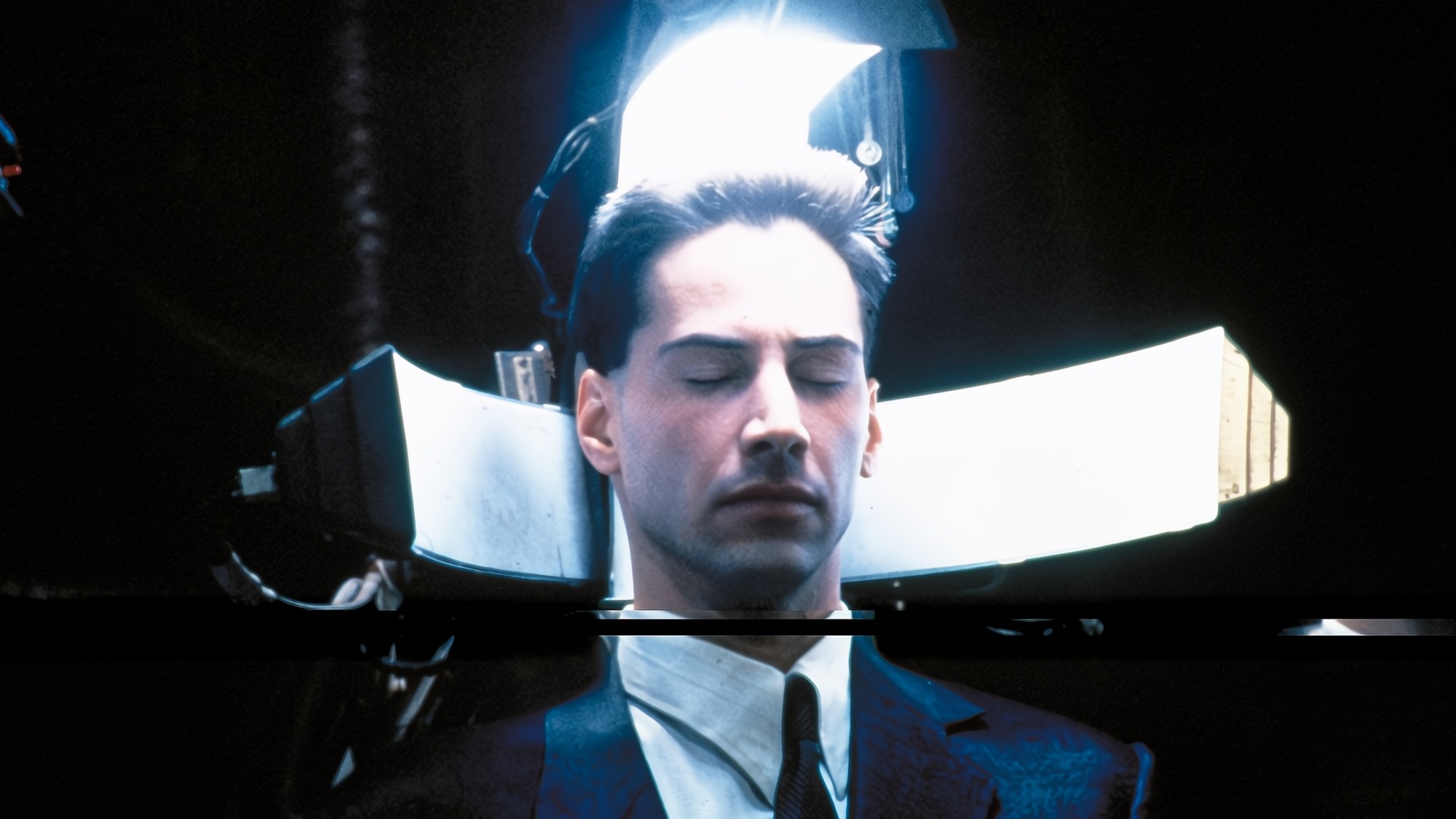
In the year 2021, society has all but crumbled under the weight of a futuristic new technology called the internet. Megacorporations rule the world, while the masses suffer from a brain disorder called “nerve attenuation syndrome” brought on by their addiction to cyberspace.
"Johnny Mnemonic" wasn’t just ahead of its time; it was downright prophetic.
Released in theaters on May 26, 1995, "Johnny Mnemonic" was a box office failure. But in the decades since, it’s become a cult classic thanks to the unlikely collaboration of screenwriter William Gibson (best known as the novelist who created the cyberpunk genre), director Robert Longo (a visual artist and first-time director suddenly at the helm of a $30 million blockbuster), and star Keanu Reeves.
Together, they created a dystopian thriller that was met with a resounding shrug at the time but has gone on to become one of the most prescient movies of its era.
Welcome to the city of chaos
"Johnny Mnemonic" stars Reeves as Johnny (no known last name), a “data courier” whose job is to upload top-secret information into his brain using a special implant and then smuggle that data to its destination.
At the start of the film, a group of scientists in Beijing hire Johnny for his services. They also warn him that the file is technically too large for his brain. He’ll die if he can’t deliver it within a few days, adding a race-against-the-clock element to an already frenzied story.
Johnny soon arrives in the “Free City of Newark,” a town so dangerous and lawless the government has ceded control to gangs and corporations. (Considering recent events in Newark, this feels surprisingly accurate in 2025.)
As we settle into the main story, it shifts from cyberpunk fantasy to dystopian hellscape. The film borrows liberally from 1981’s "Escape From New York," imagining a lawless city full of bizarre characters where violence reigns supreme.
Throughout his journey, Johnny is joined by a body-hacking bodyguard played by Dina Meyer (best known for her role on "Beverly Hills, 90210"), a freedom fighter played by Ice-T and a homicidal priest played by Dolph Lundgren. The script may be corny, but everyone onscreen is clearly having a good time and trying their best — with one surprising exception.

Reeves seems simultaneously in over his head and totally disinterested in having anything to do with this movie. Perhaps the issue is his character, who appears to be just unfazed by the chaos around him. At the film’s climax, Johnny gives a whiny speech in which he screams out: “I want room service!” William Gibson was probably trying to make a point about consumerism, but it’s hard to root for a character whose motivations are so pathetic.
So much drama ... off screen
Behind the scenes, the making of "Johnny Mnemonic" was even more dramatic. In a 1995 interview with Wired, Gibson describes the entire experience as “being part of what sometimes felt like a medieval military campaign.”
Even getting to make the movie at all was an extraordinary challenge. Gibson and Longo originally envisioned a low-budget project that could explore the rising popularity of the internet in 1995 through the lens of a cyberpunk dystopia. But the studios weren’t interested in an art house film. They wanted a blockbuster.
“We went in and asked for a million and a half, and they laughed,” Gibson told Wired. “It wasn't until we started asking for much more that they started taking it seriously.”

They ultimately settled on a much larger budget, but that came with the usual strings associated with a tentpole movie. Sony, which financed the film, got even more involved after Reeves’ previous movie, "Speed," became an unexpected hit. At one point, they even pressured Gibson to include scenes with buses and explosions in an attempt to recreate "Speed’s" success. Considering all that meddling, it’s a miracle "Johnny Mnemonic" exists at all.
Upload 'Johnny Mnemonic' to your brain by streaming it on Pluto TV
While it may be an extremely imperfect movie, "Johnny Mnemonic’s" legacy is impossible to ignore. The Wachowskis even used its depiction of the internet as part of their pitch for "The Matrix,' which took those concepts of life in cyberspace and the dangers of technology (and Keanu Reeves) and transformed them into something even better: an actual good movie.
"Johnny Mnemonic is not a good movie." Whether it lands in "so bad it’s good" territory or simply "so bad" is up for debate. Still, it's worth rewatching this bizarre cyberpunk epic that took a look at the internet back in 1995 and accurately predicted how this nascent technology would come to dominate — and ruin — all of our lives in just a few decades.
Watch "Johnny Mnemonic" free on Pluto TV







